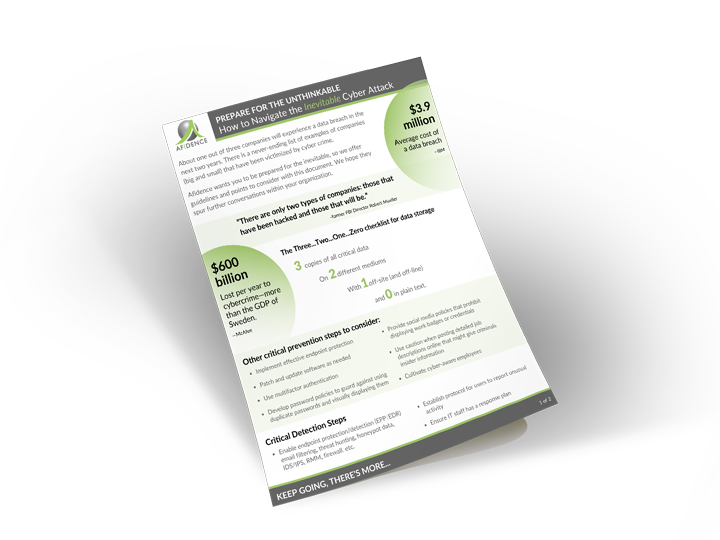Conducting a Thorough Compliance Assessment in IT Security
Compliance is important for any organization, big or small. As a business leader, it’s crucial for you to understand that it’s about more than just checking off boxes. Although checklists are involved, it’s also about cultivating an environment that values integrity, accountability and the safety and well-being of your stakeholders.
A compliance assessment involves adhering to a set of guidelines, regulations, controls or standards that ensure your organization operates legally and ethically. Hiring a professionally managed IT services provider like Afidence can help you fulfill your organizational responsibilities and protect sensitive or controlled information to keep you safe from vulnerabilities and mitigate risks.
In short, a compliance assessment plays a vital role in shaping modern businesses, ensuring that your organization adheres to relevant regulations and standards to operate legally and ethically.
Let’s explore the significance of compliance assessments, their key components and the benefits they offer to your business.
Understanding Compliance: Organizational vs. Regulatory
It’s crucial to differentiate between organizational and regulatory compliance, particularly in the context of cybersecurity. While internal policies and controls may safeguard against digital threats, regulatory bodies enforce compliance through laws and standards like ISO, AICPA, NIST, GDPR, HIPAA, SOX, FISMA or PCI DSS requirements. Identifying which regulations apply to your organization is the first step toward achieving compliance.
Challenges in Maintaining Compliance
It can be hard to keep up with technology. This can sometimes present challenges in maintaining compliance.
Without a compliance assessment, businesses may inadvertently violate industry regulations or legal requirements. Noncompliance can result in hefty fines, legal disputes and damage to the company’s reputation. For example, failing to comply with data protection laws like GDPR or HIPAA can lead to severe financial penalties and loss of customer trust.
As technology advances and threats become more sophisticated, organizations must continuously monitor and update their security controls, standards and policies to mitigate risks effectively. This is where a compliance assessment plays a vital role in the successful operation of your business.
The Role of Compliance Assessments
At its core, a compliance assessment is a thorough review process that evaluates an organization’s security practices and controls against relevant regulatory standards. This process involves:
- Scope definition: Identifying the systems, processes and data subject to compliance requirements to streamline the assessment process.
- Evaluation: Assessing existing security measures, policies, technical safeguards and human-factor management to ensure alignment with regulatory standards.
- Gap identification: Uncovering disparities between current practices and regulatory requirements to develop prioritized action plans for remediation.
- Remediation: Implementing action plans to address compliance gaps, involving changes in policies, procedures and technical configurations.
- Continuous monitoring: Implementing ongoing monitoring to ensure that remediation efforts are effective and sustainable in maintaining compliance.
Benefits of Conducting Regular Compliance Assessments
Conducting regular compliance assessments offers several benefits for organizations, including:
- Risk mitigation: Identifying and addressing compliance gaps reduces the risk of noncompliance fines, legal penalties and reputational damage.
- Improved security: Enhancing security measures to meet compliance standards strengthens protection against cyber threats and data breaches.
- Operational efficiency: Streamlining processes and controls based on compliance requirements improves operational efficiency and reduces potential disruptions.
- Stakeholder confidence: Demonstrating compliance instills trust and confidence among stakeholders, including customers, investors and regulatory bodies.
- Competitive advantage: Maintaining compliance enhances the organization’s reputation and competitiveness in the market, attracting partners and clients who prioritize security and integrity.
Ready to Conduct Your Compliance Assessment?
Compliance assessments are essential for organizations seeking to navigate the complex regulatory landscape, mitigate risks and uphold ethical standards in their operations. At Afidence, we know that by embracing compliance as a fundamental principle, businesses can safeguard their interests, build trust with stakeholders and thrive in today’s technologically advanced digital environment. Book a consultation to learn how to conduct a compliance assessment for your organization today.

